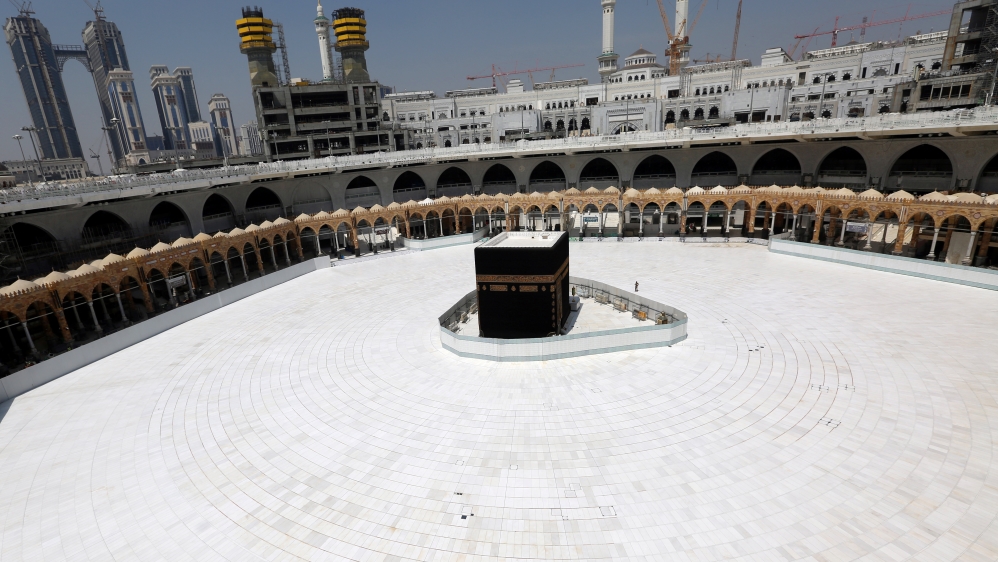The Quran has not effusively ‘celebrated’ the Hijrah probably because to do that would have run contrary to the Qur’anic style: a style which gives precedence to brevity where detailed narration is expected; a style which employs stories not as an end in itself but as a means toward a glorious end; a style which concerns itself with the Prophet but might even treat the Prophet as a second person; a style that would tell the story of the world by using Makkah and Madinah as ‘laboratory’.
Thus the story of the saga of the Hijrah is told in two Ayats (signs) of the Qur’an only.
On Hijrah and the Makkahs of today (I)
Why we didn’t declare Hijrah holiday — Oyo Govt
The first reads in part thus: “And we have put a barrier before them and a barrier behind them and we have covered them up such that they cannot see” (Q36:8).
The second Ayat goes thus: “when the unbelievers drove him out with his closest associate and he and his second were in the cave, he assured him (his second): grief not because the Almighty is with us and He caused his peace to descend into his heart and aided him with warriors unseen; thus did he utterly humble the scheming of the unbelievers…” (Q9:40).
There is a chapter in the Quran titled The Cave (Qur’an 18), but it does not celebrate the cavernous as it appertains to the odyssey of the Prophet of Islam and his companion inside the cave of Hira that day.
There is another chapter named after the Spider, but alas! not the Spider which was said to have hung its web at the entrance of the cave in which the Prophet and Abu Bakr Siddiq hid such that the unbelievers who were hitherto in their pursuit eventually became discouraged and dissuaded from exploring its hidden “treasures”.
As far as the Qur’an is concerned, it is not the events that make up the story of life that matter but what the story implies for humanity.
In the realm of the spiritual, the Hijrah was all about duty and sacrifice; in the realm of the material and the human it was an adventure.
The first precedes the second both in importance and sequence.
The Hijrah was also all about forsaking and repossessing.
This is evidenced in the individual and communal realities of those men and women who left what they treasured most in life behind in Makkah in order for them to become the most treasured generation humanity has ever witnessed.
In other words, the Hijrah essays that fact that to be deprived of the world is not the same thing as forsaking the world.
The event figures the world as operating on a scale: it is either you are deprived of the world or you are made to forsake the world.
In both instances, the world is meant to be forsaken not coveted.
But the irony lies in the fact that those who forsake the world usually have the world come to them pleading that it be possessed; those who covet the world might or might never gain it; those who excessively covet the world are more likely going to lose it and lose their souls.
Further the Hijrah had to do with the departure from a space: the departure from Makkah.
The Prophet and his companions not only left Makkah in person, but also left Makkah behind.
To leave Makkah behind meant leaving the city with its insuperable odour of greed, covetousness, self-conceitedness, oppression of the poor, and sexploitation of women.
By leaving Makkah, the Prophet was indirectly calling attention to the existence of the “Makkahs” of today: the “Makkah” in the North and South of Nigeria; the “Makkahs” in Africa and Asia; the “Makkahs” which are awaiting the emigration of humanity; the “Makkahs” of corruption in the various houses of Assembly and the corporate world; the “Makkah” in the Stock Exchange Markets where sharp practices are the order of the day; the Makkah in the banking sector where directors feast on the meagre deposits of pauperized Nigerians; the “Makkah” in local government houses where council allocations are “cancelled” on a monthly basis.
But the Hijrah of the Prophet from Makkah to Madinah did not and could not even have taken place the way it did without the resolution of matters which directly hinged on the personality of the other Muhammad. Yes.
Two types of Muhammad were known to the Makkans before the Hijrah: the Muhammad who claimed to be a Prophet and the Muhammad who was an embodiment of virtue and trustworthiness.
The “first” Muhammad was hated for his declaration that there is no god but the Almighty; the second was loved for being virtuous, kind and a peace-maker; the first Muhammad was the one the Makkans believed had to be fought; the second was the one in whom the Makkans would entrust their loftiest treasures.
But in reality, there was no separation between Muhammad, the Prophet of the Almighty and the Muhammad who was an epitome of highest moral character.
In other words, contrary to the wish of the Makkans, it was not possible for the Muhammad, son of Abdullah to have emerged as Prophet ab initio if he did not measure up to the minimum standard of probity, honesty, and trustworthiness.




